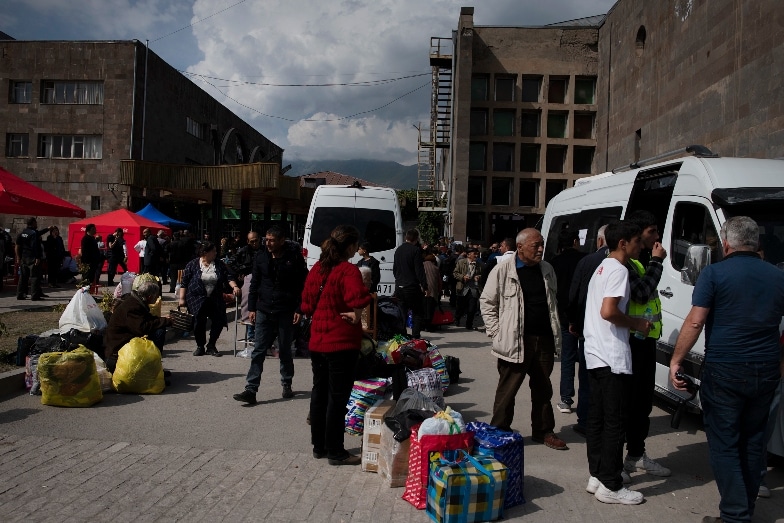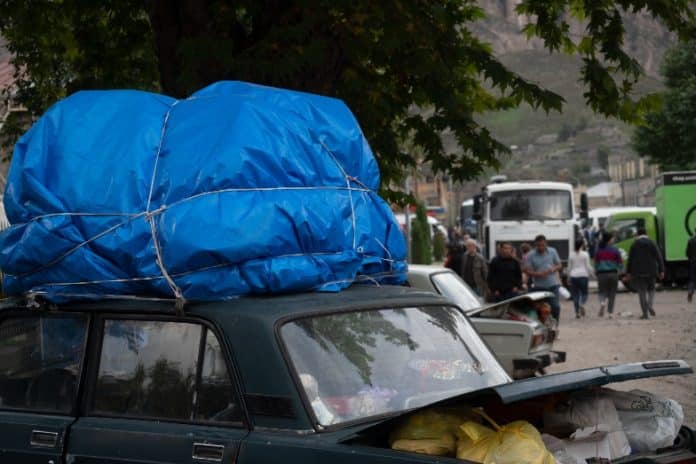More than 100,000 refugees have so far arrived in Armenia from the Karabakh region, according to the Government of Armenia. UN teams have been on the ground providing humanitarian assistance and supporting the influx of refugees since the first groups of refugees arrived at the Armenian border.
Following the recent exodus, a UN team entered the Karabakh region for the first time in around 30 years. The mission was agreed by the Government of Azerbaijan, the UN in Azerbaijan and the UN aid coordination office OCHA. Its main aim is assessing the situation on the ground and identifying the humanitarian needs.
UN Secretary-General António Guterres has urged all concerned to strictly observe the ceasefire in accordance with the 9 November 2020 Trilateral statement, and principles of the international humanitarian and human rights law.
As the humanitarian needs are surging, UN agencies are rushing to assist the affected.
Food and livelihoods
The World Food Programme (WFP) has provided 4,000 food packages to help 16,000 ethnic Armenians displaced by the conflict through the Lachin corridor and is distributing 21,000 hot meals to Armenia’s government registration and triage centres.
“We are deeply concerned about the impact on the lives and livelihoods of civilians. As the situation evolves, it is important that affected people receive timely and continued humanitarian support,” said Nanna Skau, WFP Representative and Country Director in Armenia.
“Heartbreaking” scenes
The World Health Organization (WHO) is working urgently to support Armenia’s Ministry of Health, under the wider government-led response, both now and in the months ahead. Following the dramatic explosion of a fuel depot along the route taken by those entering Armenia, WHO Special Envoy Robb Butler, visited a burns treatment centre in the Armenian capital Yerevan, describing the suffering as “heartbreaking”.
“Every single bed in this 80-bed hospital is occupied with a survivor from the explosion in Karabakh. Health workers here are working hard to treat and rehabilitate them, but this is a small country with limited capacity, and the needs are immense.”
The UN health agency, for its part, is sending medicines for non-communicable diseases that will cover three months of treatments for up to 50,000 people.
Coordinated effort

The United Nations Children’s Fund (UNICEF) has established a safe space for children in Goris, serving nearly 300 children along with their parents on a daily basis. Moreover, the UN Development Programme (UNDP), alongside WHO and UNICEF, is preparing a psychosocial support scheme for over 12,000 refugees.
The UN refugee agency (UNHCR) is supporting the Government with technical equipment, including laptops and tablets, to facilitate the registrations of refugees and has distributed 150,000 health kits to support both refugees and their host communities.
The UN Population Fund (UNFPA) has supported thousands of women in transit centres with dignity kits, which include sanitary pads, soap, shampoo and more.
UN mission
In a statement issued following Sunday’s (1 October) mission led by the UN’s Resident Coordinator in Azerbaijan, together with other senior agency officials, they heard and saw for themselves that in the city of Khankendi at least, there were no signs of damage to public buildings.
“The mission was struck by the sudden manner in which the local population left their homes and the suffering the experience must have caused,” the UN team said.
See also:
UNRIC Library Backgrounder: Karabakh
